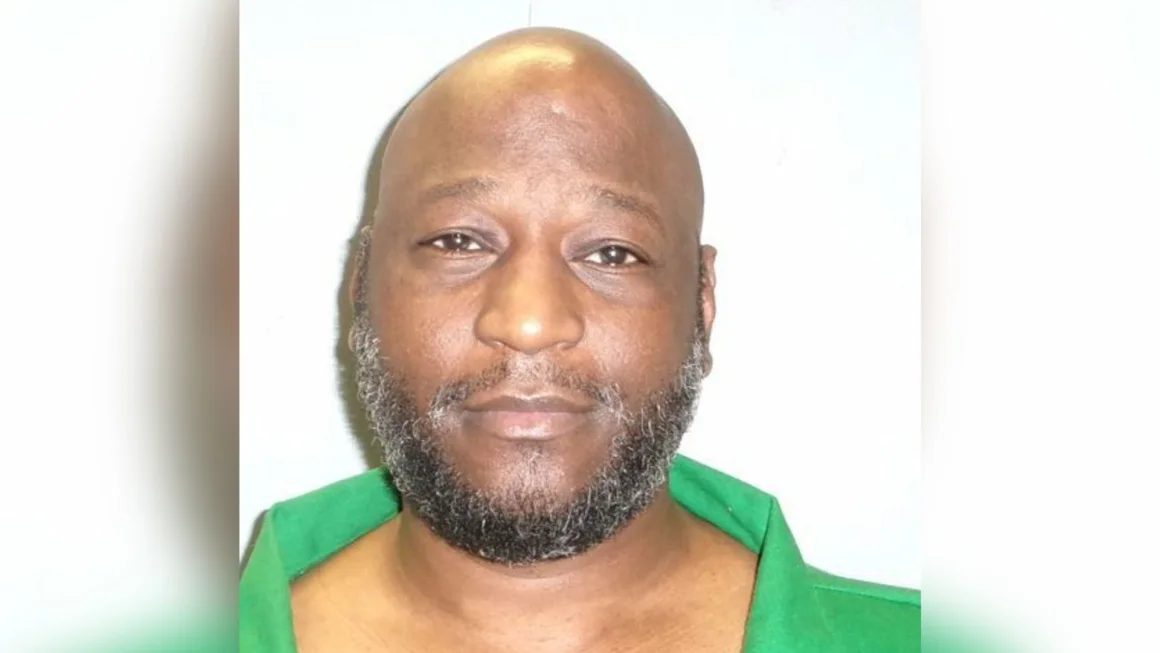Freddie Owens, a South Carolina death row inmate, was executed by lethal injection on Friday, marking the state’s first execution in over a decade. Owens, who was 46 years old at the time of his death, had been on death row since 1999 for the murder of a convenience store clerk, Irene Graves, during a robbery in Greenville. The execution comes after years of legal battles and delays, highlighting the complex and controversial nature of the death penalty in South Carolina.
Table of Contents
The Crime and Conviction
Owens was convicted for the 1997 murder of Irene Graves, a 41-year-old mother of three, who was shot while working the night shift at a convenience store. The crime took place during a robbery Owens committed at just 19 years old. Two years later, in 1999, he was sentenced to death for murder, armed robbery, and criminal conspiracy.
Owens’ criminal record didn’t stop with the killing of Graves. While awaiting sentencing for the robbery and murder, he confessed to murdering a fellow inmate. Despite these crimes, Owens maintained his innocence regarding the robbery and shooting of Graves, and his legal team continued to fight for clemency and a stay of execution until his final moments.
Legal Struggles and Last-Minute Appeals
Owens’ attorneys worked tirelessly to prevent his execution, filing a last-minute appeal to the Supreme Court of the United States just hours before his death. They argued that Owens had been denied due process because South Carolina officials did not provide him with key information about the lethal injection drugs or the qualifications of the execution team. However, the court denied the request, paving the way for the execution to proceed.
Another significant appeal came in the form of a new affidavit from Owens’ co-defendant, Steven Golden, who claimed Owens was not present during the robbery and murder. Golden’s affidavit also stated that he knew the identity of the actual gunman, though this testimony contradicted his earlier statements during Owens’ trial. Despite this new information, South Carolina’s Supreme Court refused to halt the execution, citing the inconsistency in Golden’s statements.
The Execution
Freddie Owens was executed by lethal injection at 6:55 p.m. ET on Friday. He made no final statement before the lethal dose of pentobarbital, a drug commonly used for pet euthanasia, was administered. This drug was used after South Carolina resolved a nearly decade-long shortage of lethal injection medication. The state had struggled to secure the drugs necessary for lethal injection, which led to prolonged delays in carrying out death sentences.
Family members of Irene Graves were present at the execution, observing Owens as he lay covered in a white sheet, wearing a green prison jumpsuit. According to reporters at the scene, the family members maintained an intense, emotionless stare, watching Owens until well into the procedure. The Associated Press reporter Jeffrey Collins noted there was no visible anger from the family, but rather a focused gaze as the execution unfolded.
Controversy Surrounding the Death Penalty in South Carolina
South Carolina’s death penalty has been a subject of legal and public debate, especially since the state faced significant obstacles in obtaining lethal injection drugs. This led to the introduction of a 2021 law allowing inmates to choose between death by the electric chair or a firing squad if lethal injection drugs were unavailable. Owens was originally scheduled for execution in June 2021 but was granted a temporary reprieve when the court blocked his and another inmate’s execution due to procedural concerns related to the firing squad.
In 2023, Governor Henry McMaster passed a shield statute that protected the identities of those involved in the execution process, helping the state finally secure lethal injection drugs. Owens was asked to choose between three execution methods: lethal injection, the electric chair, or a firing squad. He granted his attorney, Emily Paavola, the power to choose, and she selected lethal injection for her client.
A Controversial Ending
Freddie Owens’ death has left many questioning the fairness of his trial and execution. His legal team described the execution as a “tragedy,” stating that Owens was not responsible for Graves’ death. Attorney Gerald “Bo” King emphasized Owens’ difficult childhood, marred by extreme suffering, and pointed to what he called legal errors, hidden deals, and false evidence in the case. King condemned the events that led to Owens’ death, saying, “The legal errors, hidden deals, and false evidence that made tonight possible should shame us all.”
Despite his execution, the case remains controversial due to the last-minute affidavit and Owens’ ongoing claims of innocence. His execution was the 14th in the United States this year, with all but one carried out by lethal injection. The debate over the death penalty, both in South Carolina and across the nation, continues to be fueled by cases like Owens’, where issues of due process and legal integrity remain under scrutiny.




